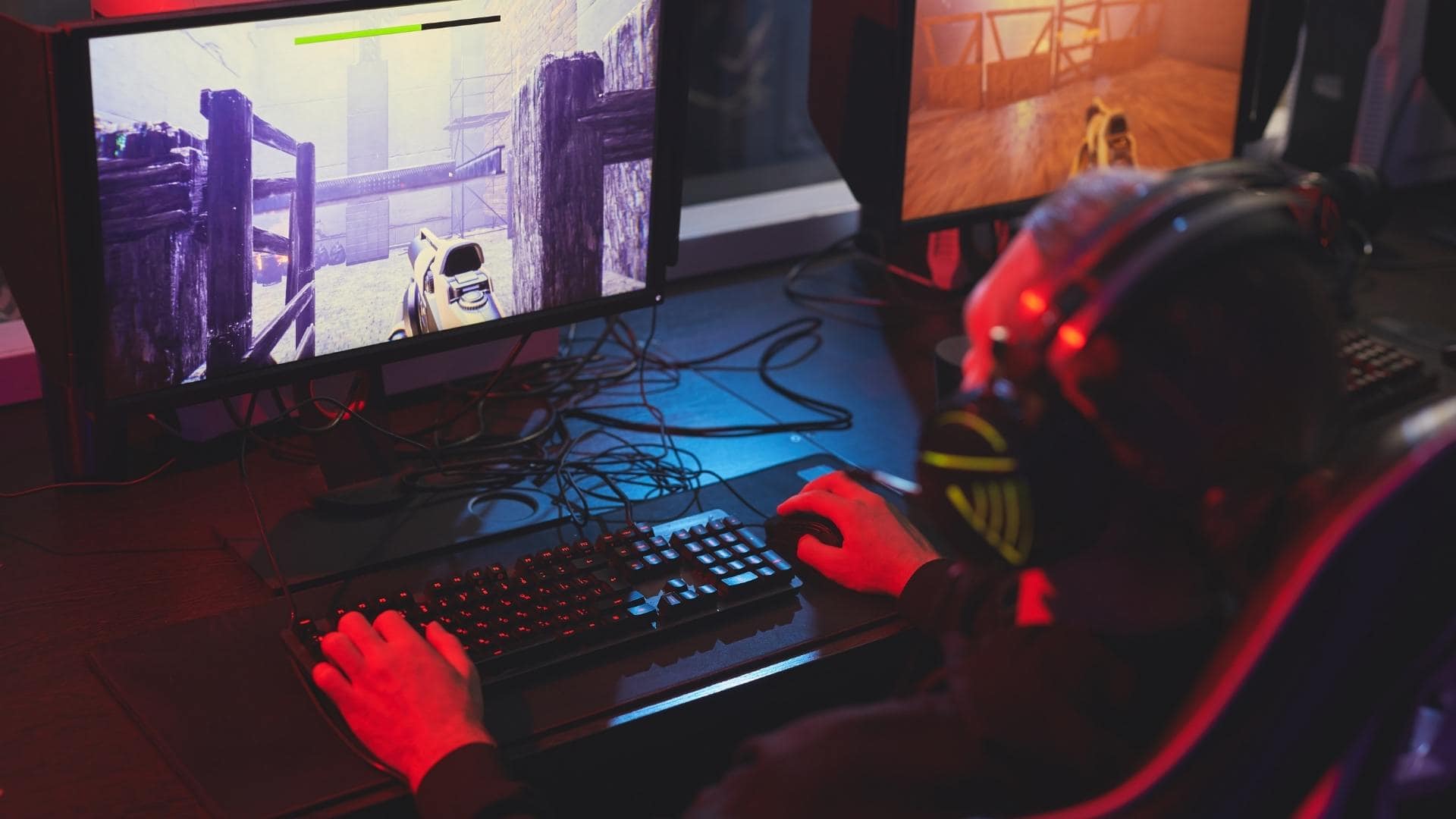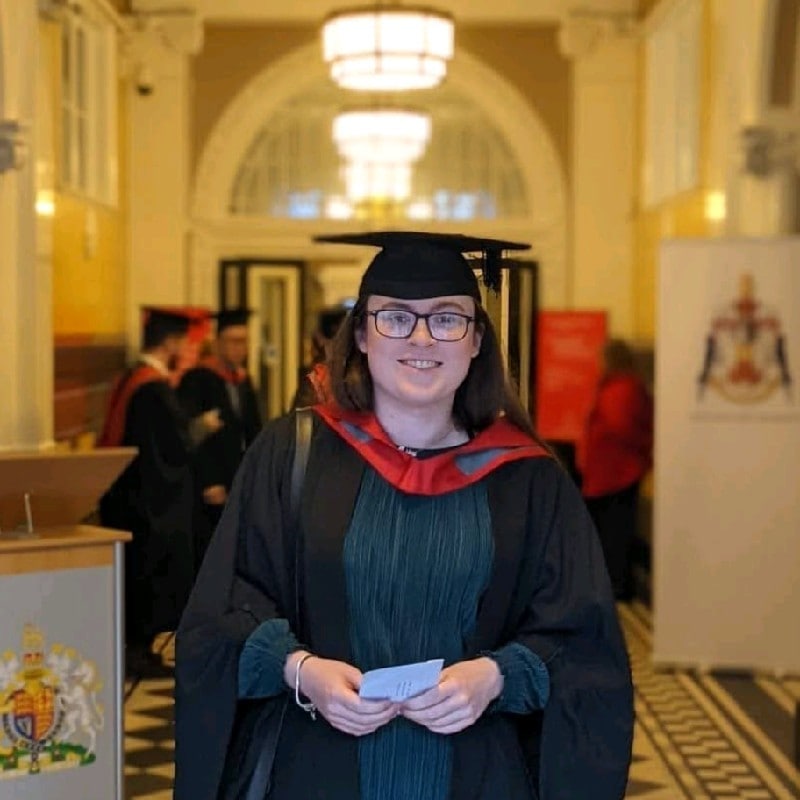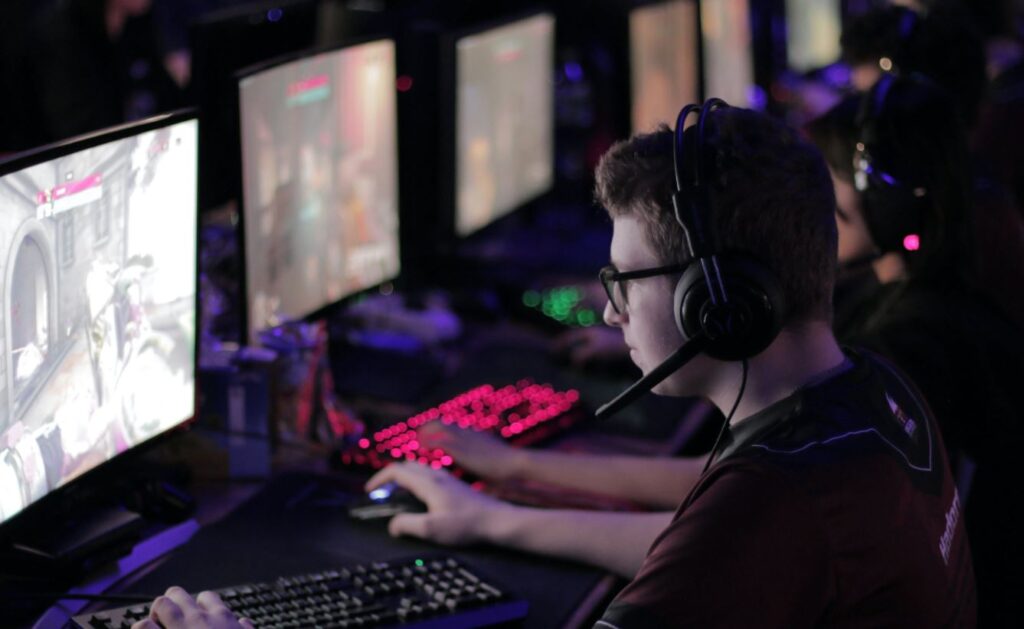
Education and Esports: an exciting, innovative field for gamers
Esports is a new and buzzing field, filled with innovation and new territories (such as education) that’s pioneered by professionals in roles that barely existed at the turn of the century.
As an outside observer, it has been fascinating to watch as esports evolves from gaming into its own, exciting medium, and as a student at university, I have been able to get a front seat experience of Britain’s first esports undergraduate course from its conception in 2018.
It was around that time when I first met Madeline Daniels, an esports student, and now a lecturer on the BA (Hons) Esports course itself.
I got the opportunity to speak to Daniels for Gayming Magazine, who shared some of her insights into esports, as well as her personal experience in the esports field.
Could you tell us a little bit about yourself?
My name is Maddie, I’m a lecturer on the Esports course, and I’m primarily a sim racer. I collect old retro video games.
What does a normal day look like for an Esports lecturer?
Outside of lecturing hours, it’s preparing for the lectures, a lot of admin, attendance monitoring, as well as helping students run events when they decide to run events in our Esports Hub.
How did you get into an educational role about Esports?
Through my time studying Esports, I sort of realized I wanted to get involved in Esports education and help further the industry. I ended up stumbling across that they were hiring for an Esports lecturer.
What’s one of the first things you noticed about being a trans person in the Esports industry?
So, I guess I’ve been kind of lucky in terms of the fact that its never really affected me, I’ve never really noticed it because when I came out as trans I was already in a very inclusive, very open guild in Black Desert Online, the main game I played at the time. It was a gaming community I was a part of and they were already pretty open and by the time I’d left them and moved on from that I was already coming to university, and university as a whole is an open and inclusive place, so I’ve been pretty lucky in just being in open places in esports.
Did open and inclusive spaces give you confidence to explore your identity and come out?
It was a case of being around people who have gone through similar issues – where I come from it’s not very common, so it was a case of being in that community online made me feel like it was the right thing for me. Being in that space made coming out a lot easier.

What’s it like being an LGBT+ person in Esports education?
Again, it’s not really something I notice that much; it comes back to me feeling very lucky to be around welcoming and inclusive people. I already knew the people I was going to work with so I didn’t need to spend the first week of work explaining to people it was she/her, they already knew. So I’ve been pretty lucky in the fact that it hasn’t affected my work, nothing has come up, I don’t mention it in my classes, because I don’t need to.
As a queer person its one of those things you like to see – that kind of silent inclusion
It’s the best kind, to be honest. If anything I feel more included in a space where it’s not spoken about than a space where it’s spoken about every week.
What work do you think can be done to make Esports industry more queer friendly?
The Esports industry is improving by itself already – there’s obviously the large stereotype that surrounds the toxic masculinity and male dominance in Esports. In terms of gamers as a whole, it’s a pretty 50/50 split in terms of female to male, it’s just the esports side of things is louder and a lot more male. But there are new events coming through; more inclusive events being pushed forwards, and inclusive initiatives being pushed forward in the Esports industry. It allows more people to feel that they have a place, even as a minority.
Have you had any positive experiences that directly relate to your identity?
Coming back to what I said earlier, I think I rolled the lucky dice in terms of I got somewhere where it doesn’t really matter, but I know other trans people in esports who had a much harder time who were in spaces that made it harder for them to come out and be themselves.
Is there anything in the Esports world queer related that we should know about?
There are more inclusive and open events that are cropping up, mostly as side events at larger events. They could potentially be their own thing. In Esports as a whole, there are more queer people than people would tend to think on the outside, there was a study that I was looking at previously that said 10% of gamers are LGBT+.
What advice would you have a for a queer person who wants to get into Esports?
Just jump right in. Find events to volunteer at, find teams to be a part of.You will hit a brick wall, but it’s a case of perseverance and knowing that you will find somewhere that’s for you. Get involved as much as you can.

One of the things I learned from speaking with Maddie was the fact that, in this case, her experience with Esports has achieved a longtime goal for LGBT+ people. Maddie talks a lot about how there was an automatic acceptance of her identity amongst her colleagues and students. Acceptance and inclusion has been a long-term goal for many LBGT+ people – the ability to seamlessly fit into society and be accepted is basically my own end goal in terms of LGBT+ activism as a queer person. Esports demonstrates, in this case, that educational and professional communities can become inclusive spaces, and it’s down to the passive, inclusive attitudes of the present and future generations of professionals in this industry.
Maddie explains that she comes from a background in online gaming, a background that likely many of her past cohorts and current students share. Games themselves allow people to interact with each other regardless of origin or identity and can allow players to bond over similar experiences within said games where they otherwise would not. The communities around these games also allow for closer interaction – friendships, rivalries, and the like. These social spaces all have the possibility to act as Maddies’ did, as a way of sharing experiences and allowing people to become more themselves in an environment where they felt safe. A viewpoint shared by esport communities like Brawlhalla, for example.
What these groups demonstrate is a link between being open and inclusive and positivity and acceptance. They support the ability for people to be themselves and to come out, taking this acceptance and experience with them when they move on to the next thing in their life.
I think it’s very possible their experiences go with them, and that’s how communities are created with that aspect of passive inclusion which is infinitely valuable and comforting to queer people.





